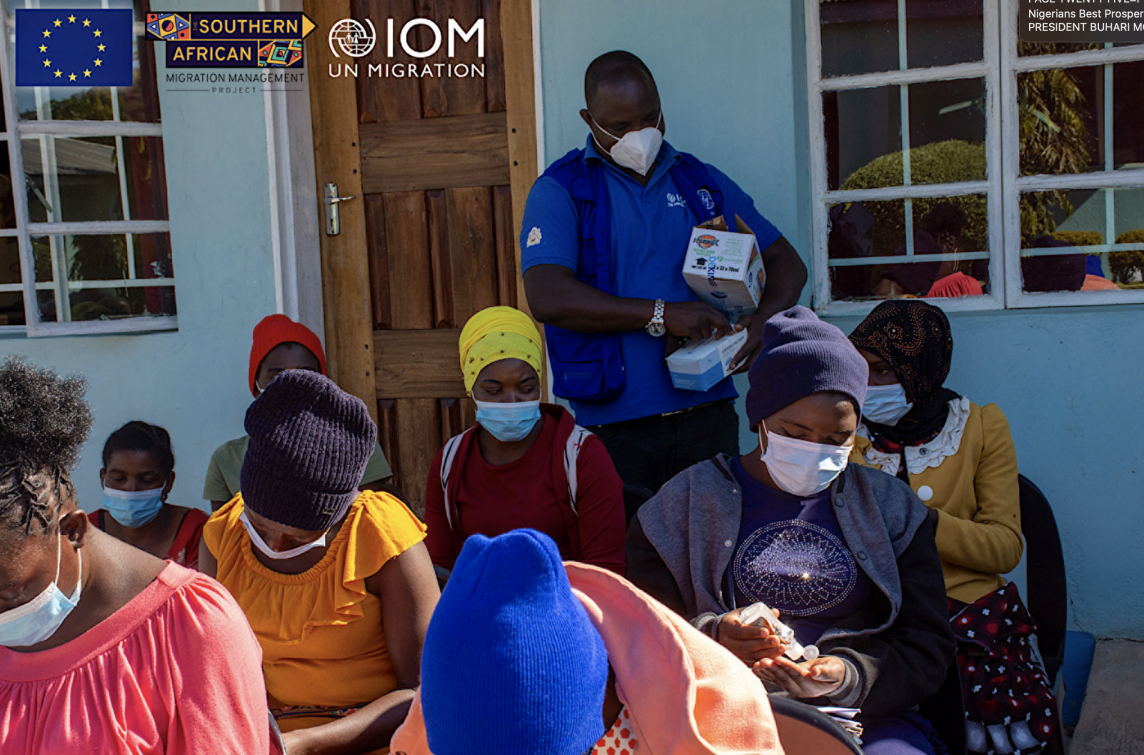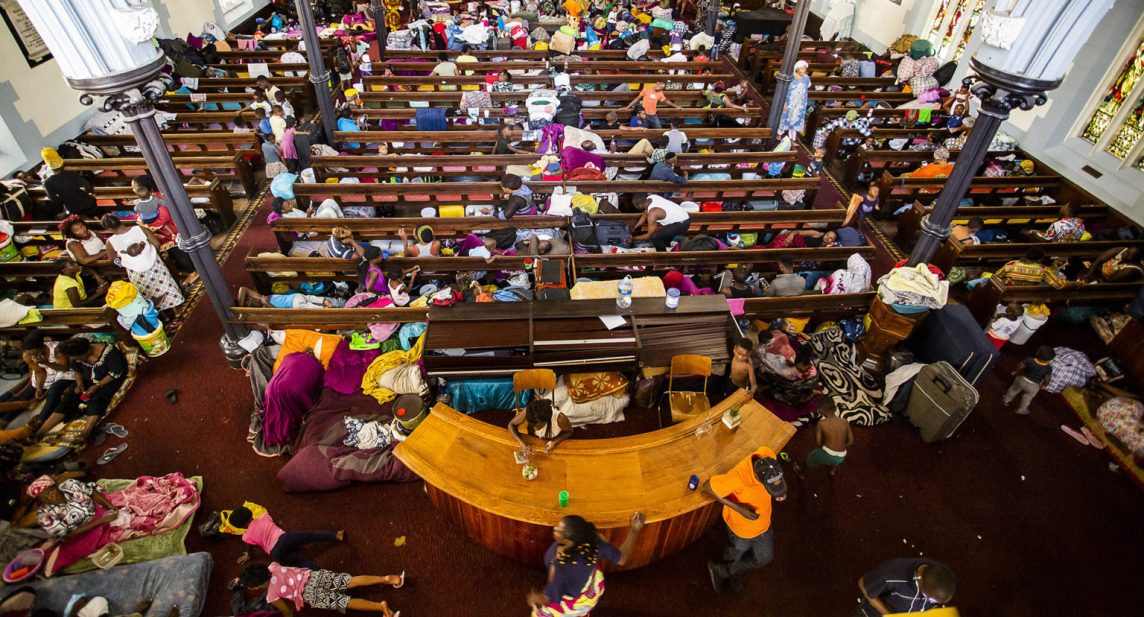PRETORIA, 8 July 2021 – Since the start of the COVID-19 pandemic in Southern Africa last March 2020, trends of irregular migration toward South Africa increased, due to the various socio-economic effects of the pandemic on many households.
The International Organization for Migration, through support from various partners such as the European Union-funded Southern African Migration Management (SAMM) project, Irish Government, The United Kingdom’s Foreign, and the Commonwealth and Development Office (FCDO), helped 397 stranded Malawian’s migrants to return home from Zimbabwe.
Between March and July 2021, IOM assisted 273 Malawian migrants with voluntary return assistance to their country of origin, in incremented groups, many of whom were stranded at the Beitbridge border point of entry, while attempting to reach South Africa. “The increasing number of stranded Malawian migrants in Zimbabwe en-route to South Africa depicts the current dynamics of human mobility in the context of the pandemic and a sustainable approach needs to be put in place to address the mobility patterns and the associated protection issues” says, Mario Lito Malanca, Chief of Mission, IOM Zimbabwe.
“Life was becoming challenging financially in Malawi due to lack of income, so I wanted to follow my husband who is already in South Africa, but I was stopped by the police in Zimbabwe and remained under their custody for three months, before IOM helped me come back to Malawi”, said 25-year-old Asiyatu Jafali, from Mwanyama village, who is one of the women of the recent assisted groups.
IOM Zimbabwe provides the returnees awaiting travel with a range of services which include pre-travel health assessments, Personal Protective Equipment (PPE), COVID-19 tests, meal allowances, baby essentials packages where there are infants, sanitary wear and transportation. On arrival in Malawi, IOM Malawi provides returnees with psychosocial support through counselling; transport to their final destinations, PPE and in some cases, vulnerability assessments are done depending on availability of funds for reintegration assistance.
“I tried leaving my village of Kadzati in Malawi, to go to South Africa to find a job and support my family better, but since I had no proper documents, I was stopped in Zimbabwe and kept for 60 days”, said 27-year-old Mofati, one of the men assisted from the same latest group of returnees. “Now that IOM helped me return home, I would rather stay and look into opening my own business selling livestock”, he continued.
“The COVID-19 pandemic has undeniably affected many people livelihood all across the world, leading to an increasing number of persons opting to migrate in search of better opportunities, and Southern Africa is no exception”, said Charles Kwenin, IOM Regional Director for Southern Africa. “IOM remains committed to helping Governments in alleviating
the many burdens faced by vulnerable migrants, through various humanitarian services, including assisted voluntary returns, thanks to the support from our donors”.
For more information, please contact Abibo Ngandu, IOM Regional Communication Officer angandu@iom.int, Fadzai Nyamande-Pangeti, IOM Zimbabwe Communication Officer fnyamandepan@iom.int, and Jacqueline Mpeni, IOM Malawi Communication Officer jmpeni@iom.int
 English
English


